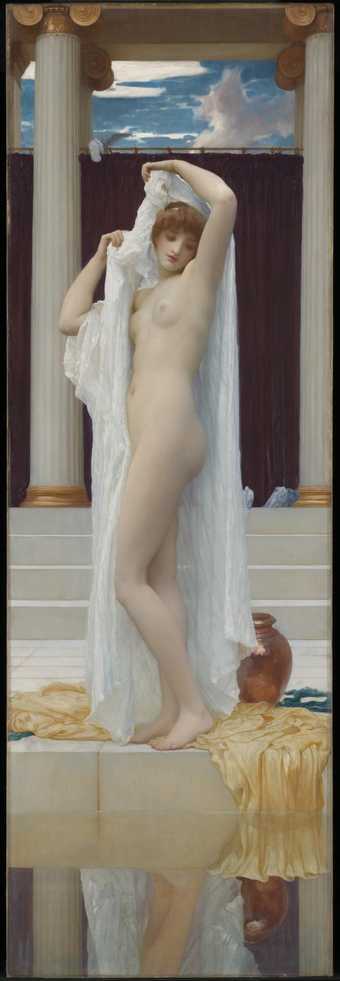
Frederic, Lord Leighton
The Bath of Psyche
(exhibited 1890)
Tate
In ancient Greek mythology Mount Olympus in Greece was the home of the ancient gods, and the name refers both to the classicism of these artists and their huge success and dominance of the art of their time.
Notable Olympians were Sir Lawrence Alma-Tadema, Lord Frederic Leighton, Sir Edward Poynter and George Frederic Watts. Leighton in particular achieved almost god-like status. He was hugely handsome and an athlete, but also an intellectual; he became president of the Royal Academy in 1879, was created a baronet in 1886, and was elevated to the peerage, becoming Lord Leighton, just before his death in 1896. Alma-Tadema and Poynter were knighted and Watts was awarded the Order of Merit.
A crucial source of inspiration for the Olympians was the so-called Elgin Marbles – the ancient Greek sculptures from the Parthenon in Athens brought to London by the Earl of Elgin in 1807 and housed in the British Museum from 1816.
